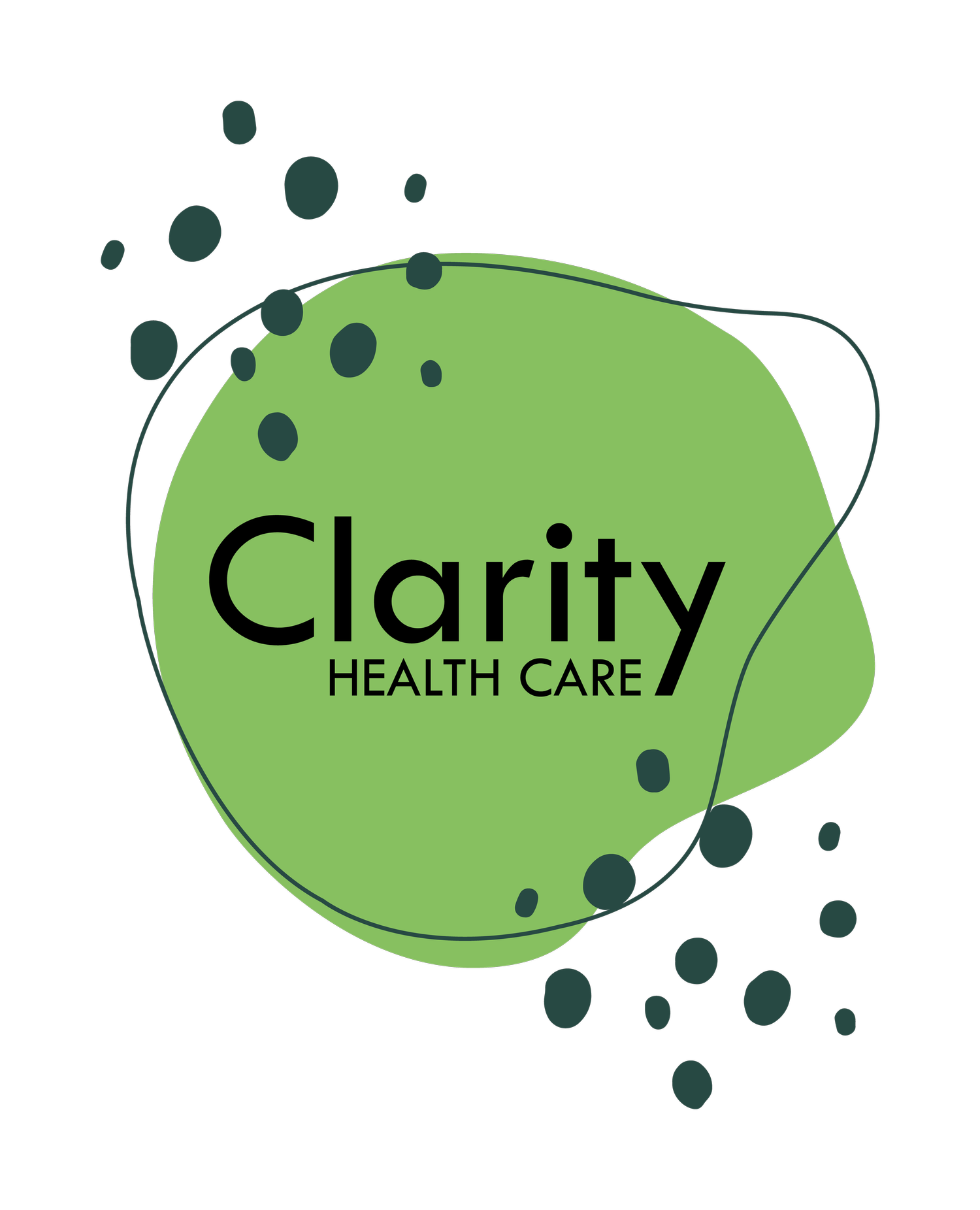
Optimal Health Program
MDMA/Ecstasy Harm Reduction
Written by Aimee Oliveri (Clinical Psychologist & Mental Health Content Creator) in Collaboration with Clarity Health Care
What is MDMA?
MDMA (3,4-methylenedioxymethamphetamine), commonly known as ecstasy, pingers or molly, is a synthetic drug that stimulates the central nervous system causing high levels of dopamine to be released, resulting in euphoric effects. While there is emerging evidence supporting the therapeutic potential of MDMA for certain mental health disorders such as post-traumatic stress disorder (PTSD), it is essential to acknowledge that the predominant use of MDMA is illicit and unregulated.
MDMA Related Effects
The first thing to keep in mind when considering the effects of MDMA is that some pills sold as MDMA may only have a small amount of MDMA or none at all. Other drugs and ‘fillers’ are often used instead. This makes it hard to know what reactions to expect after taking MDMA.
Moreover, MDMA affects everyone differently, based on:
- Size, weight and health
- Whether the person is used to taking it
- Whether other drugs are taken around the same time
- The amount taken
- The strength of the drug
- Environment (where the drug is taken).
Short-Term Effects
Short-term MDMA use can lead to a range of effects, including:
- Euphoria
- Feeling energetic and confident
- Dilated (enlarged) pupils
- Jaw clenching and teeth grinding
- Heightened senses (sight, hearing and touch)
- Excessive sweating and skin tingles
- Muscle aches and pains
- Reduced appetite
- Fast heartbeat
- Increased blood pressure
- Anxiety and panic attacks
- In the days after MDMA use, you may experience a comedown: lethargy, problems sleeping, irritability, depression and difficulty concentrating.
If you take a large amount or have a strong batch of MDMA, you may also experience:
- Floating sensations
- Perceptual changes, such as visual and auditory hallucinations
- Out-of-character or irrational behaviour
- Irritability, paranoia and aggression
- Increased body temperature, which can result in heatstroke, particularly in crowded or hot environments, and has been an increasing cause of death at festivals and nightclubs.
- Seizures.
- Both dehydration and excessive water intake can lead to a dangerous condition known as dilutional hyponatremia, where the brain swells due to imbalanced sodium levels, potentially resulting in fatality.
- It’s possible to overdose on MDMA, which can be fatal.
Long-Term Effects
Long-term use of MDMA can have profound impacts on both mental and physical health. Chronic use may lead to:
- Frequent colds and flu
- Memory and concentration problems
- Liver problems
- Financial, work and social problems.
- Serotonin depletion, affecting mood regulation and cognitive function.
- Memory impairment
- Depression
- Irreversible neurotoxicity.
Harm-Minimisation Strategies
Because using MDMA can have such harmful effects, abstaining from MDMA is the safest option. Nonetheless, harm minimisation strategies can help mitigate risks for those who choose to use. Some harm-minimisation strategies include:
- Try a smaller dose first and wait 2 hours before taking more
- Limiting dosage and frequency of use. Avoid using it on consecutive days.
- Avoid mixing MDMA with other substances, including alcohol.
- Testing substances for purity and potency before use.
- Seeking medical assistance immediately if experiencing adverse effects such as confusion, a pulse rate greater than 120 beats per minute, nausea, excessive fluid consumption, severe headache or convulsions.
- Using when there is someone responsible and sober around who can monitor you.
- If you are dancing or in a crowded space, take regular rests and keep cool by wearing light, absorbent clothing.
- Drink water but regulate intake so that you do not drink too much. Around 250-500ml of water per hour should suffice.
- Rest the next day, eat a substantial meal and drink plenty of water and/or juice
- Do not inject. If you do, however, don’t share syringes and injecting equipment
- Some medications interact with MDMA, always check first before taking
Quitting MDMA
Quitting MDMA can be challenging, but it's possible with the right support and strategies in place. Consider the following:
- When people stop using drugs or alcohol, they often go through a period of withdrawal which can extremely challenging and at times, medically dangerous.
- People with chemical dependence frequently require support with planning ahead, goal setting, coping strategies, and overall health management including vitamin supplementation to aid them in the process.
- Medical professionals can prescribe medications to help alleviate withdrawal symptoms and cravings associated with MDMA dependence, otherwise known as Medication-Assisted Treatment. These medications, when used in conjunction with counselling and lifestyle changes, can help make it easier to not use drugs or alcohol.
- When individuals have a predisposition to or a history of mental health issues, the impacts of introducing, reducing, or removing chemical substances from their system can be unpredictable, often necessitating additional support during this period.
Thus, taking steps to reduce or quit MDMA is best done under the guidance of qualified professionals to ensure safety and increase chances of success.
Getting Help
You can find support and more information about MDMA through;
- See your doctor for information and referral.
- The National Alcohol and Other Drug Hotline (1800 250 015): Offers free and confidential advice, information, and counselling for individuals affected by drug addiction, including MDMA use.
- Path2Help: The Alcohol and Drug Foundation's online platform can help you find local support services and treatment options for MDMA addiction.
- Websites like the Drug Help website and the Alcohol and Drug Foundation provide valuable information and self-help tools for people struggling with MDMA use.
